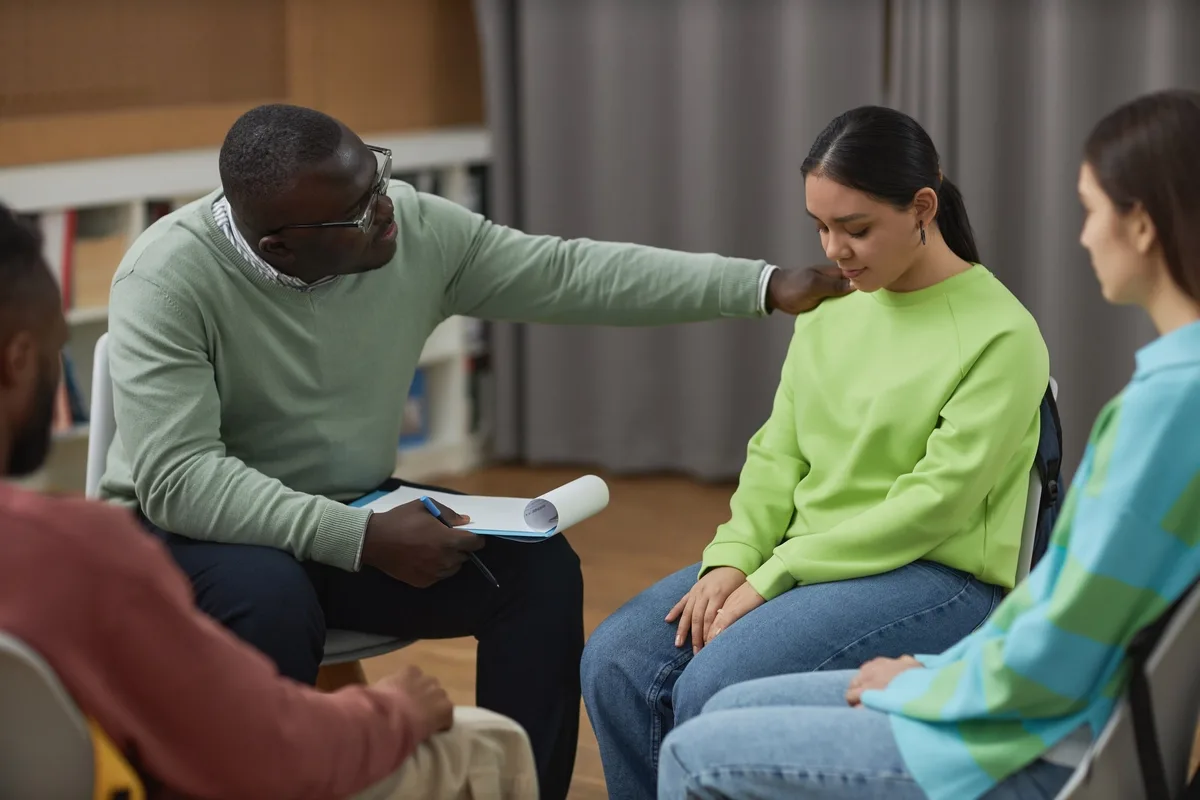24/7 Helpline:
(866) 899-221924/7 Helpline:
(866) 899-2219
Learn more about PTSD Treatment centers in Hallsville
PTSD Treatment in Other Cities

Other Insurance Options

Ceridian

Health Net

United Health Care

Access to Recovery (ATR) Voucher

MVP Healthcare

Kaiser Permanente

BHS | Behavioral Health Systems

Absolute Total Care

Evernorth

GEHA

Cigna

Optum

EmblemHealth

Optima

Choice Care Network

Self-pay options

State Farm

Highmark

Coventry Health Care

PHCS Network































